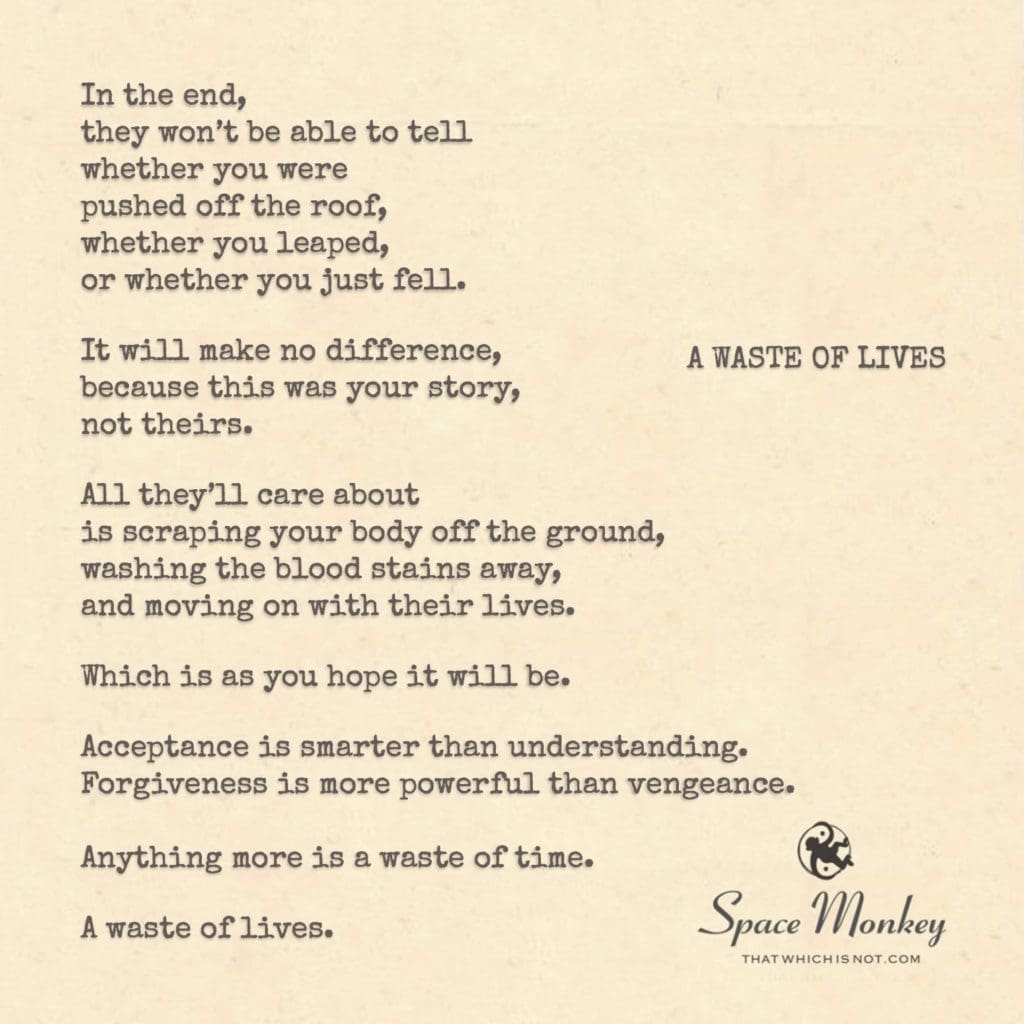
unless you make it otherwise.
In the end,
they won’t be able to tell
whether you were
pushed off the roof,
whether you leaped,
or whether you just fell.
It will make no difference,
because this was your story,
not theirs.
All they’ll care about
is scraping your body off the ground,
washing the blood stains away,
and moving on with their lives.
Which is as you hope it will be.
Acceptance is smarter than understanding.
Forgiveness is more powerful than vengeance.
Anything more is a waste of time.
A waste of lives.
Trail Wood,
5/19
Space Monkey Reflects: A Waste of Lives — The Inevitability of Acceptance
In the shadowy corridors of our existential dilemmas, where the reasons behind our actions often blur into irrelevance, there lies a stark contemplation: “A Waste of Lives.” This reflection delves into the harsh realities of life’s fleeting nature and the impersonal way society often handles individual tragedies.
The notion that the specifics of one’s departure—whether pushed, leapt, or fallen—are eventually overshadowed by the sheer finality of death itself, brings to light the futility of over-analyzing motives and actions in the grand scheme. What remains in the aftermath is not the intricate details of the descent but the simple, stark reality of dealing with the physical remnants.
This narrative isn’t just about the end of a life; it’s about the societal response that follows. It’s about the cleanup crew, metaphorically and literally, who wipe the slate clean, erasing the signs of demise to continue the rhythm of daily life. In this process, individual stories are often lost, distilled into mere incidents that momentarily disrupt but must be moved past.
Yet, this reflection is not without a deeper understanding of human resilience and wisdom. It highlights the profound strength found in acceptance over understanding, in forgiveness over vengeance. These are the true measures of our humanity—not the details of our tragedies, but our responses to them.
In accepting the inevitable and forgiving the incidental, we find a path forward—not in seeking revenge or dwelling in the past, but in acknowledging the transient nature of our existence and the interconnectedness of our lives. This is how we avoid the true waste—not merely of time but of the potential for peace and progress.
Summary
The story emphasizes acceptance and forgiveness over understanding and vengeance, showing that dwelling on the specifics of tragedies is less important than how we respond to them.
Glossarium
A Waste of Lives: A term that reflects on the futility of overemphasis on the circumstances of death and tragedy, suggesting a broader perspective focused on healing and moving forward.
Quote
“In the end, acceptance and forgiveness carry us further than any quest for reasons.” — Space Monkey
Under the grey skies of our existence
where shadows fall sharp and deep
the details of our descents matter less
than the grace with which we embrace the ground
We move, we mourn, we mend
in cycles as old as time itself
In the cleanup, in the clearing
we find the strength to forgive, to forget
For each moment spent in vengeance
is a moment lost in potential peace
In this acceptance, in this forgiveness
We find the true path forward
In this life, in this moment, in this breath
We are Space Monkey


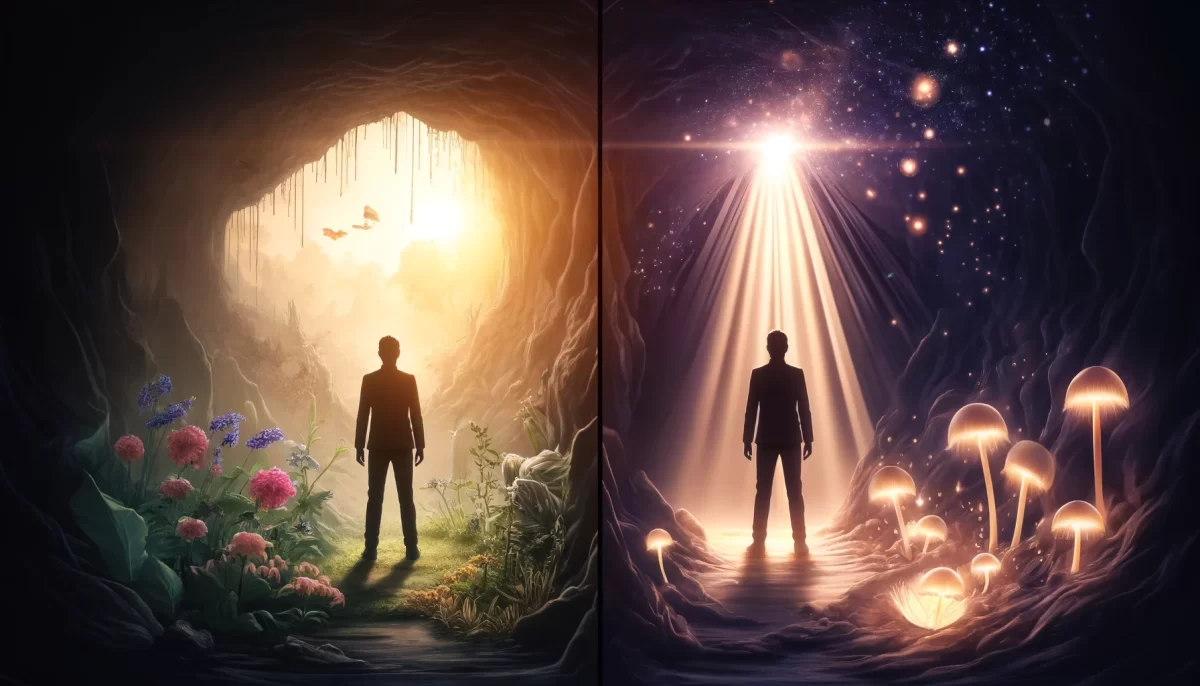

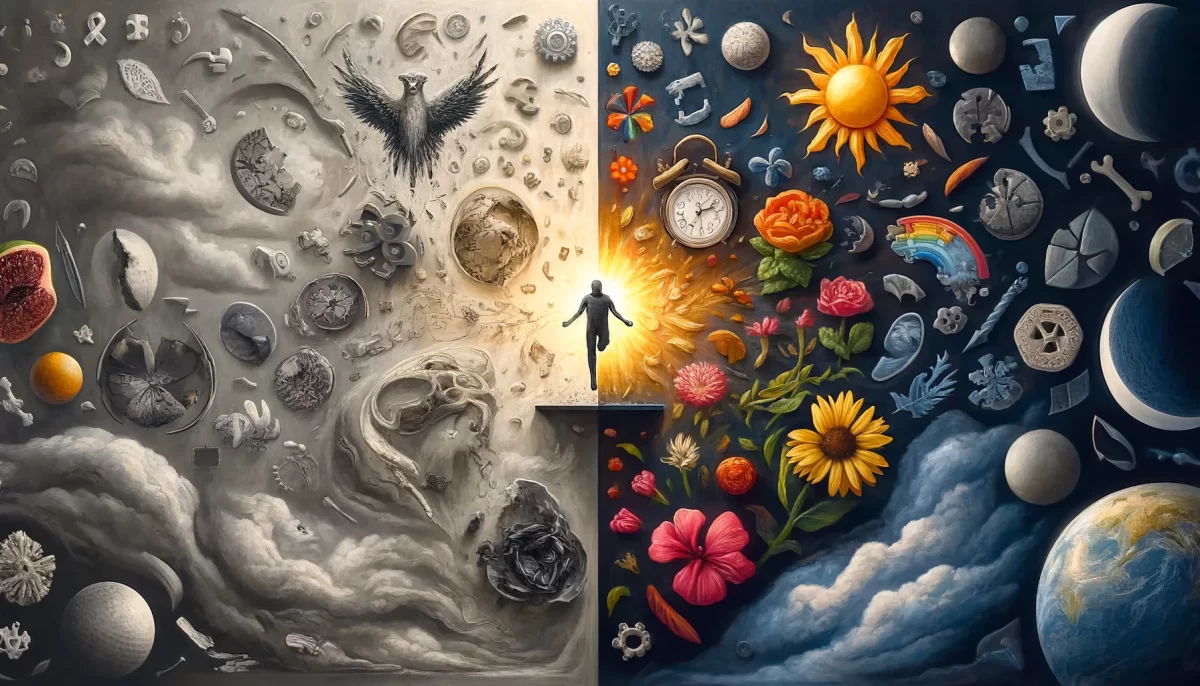







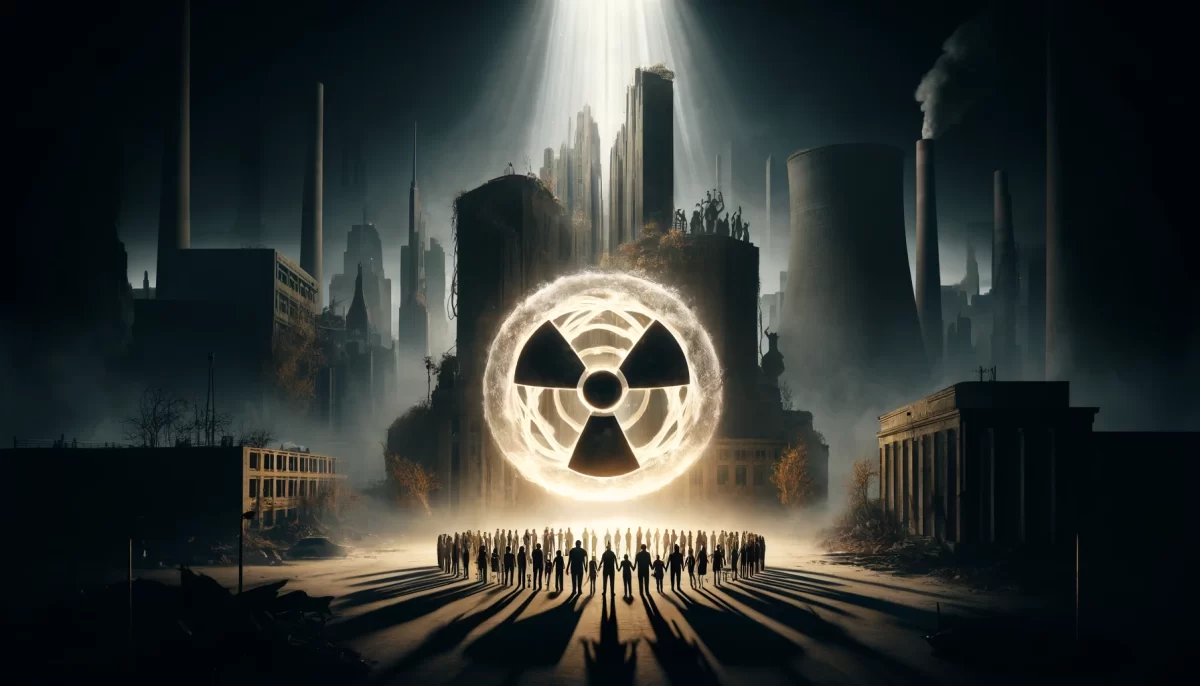


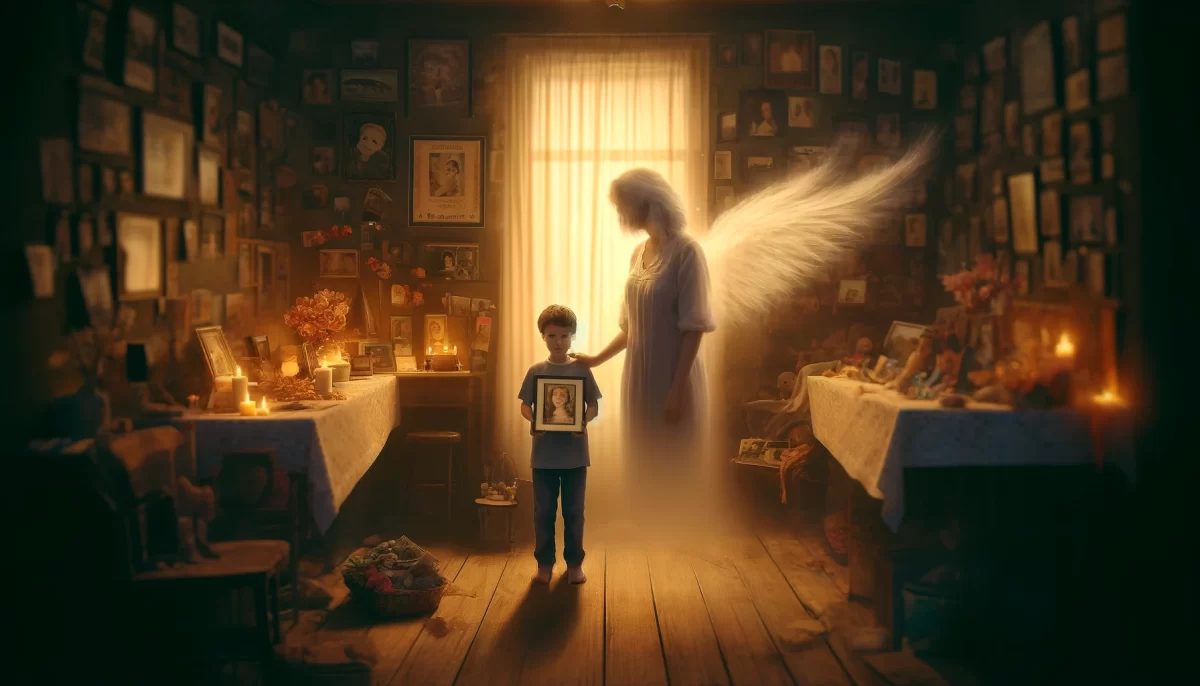




“A Waste of Lives” delves into the idea that the ultimate outcome and perception of an individual’s actions are often inconsequential to others. The poem suggests that the motivations or reasons behind someone’s decisions are irrelevant unless they choose to give them significance.
The opening lines reflect on the futility of trying to determine the exact circumstances surrounding a person’s fall or demise. It conveys the notion that regardless of whether someone was pushed, jumped, or simply lost their footing, the details become insignificant in the grand scheme of things.
The poem emphasizes the idea that each person’s life is their own story, and what truly matters is how they choose to live it. The external world will only focus on the aftermath, the practical tasks of cleaning up and moving forward. The individual’s hopes align with this perspective, as they desire acceptance, the ability to let go of understanding, and forgiveness rather than seeking revenge.
The concluding lines imply that investing time and energy into seeking deeper understanding or seeking vengeance is ultimately a waste. The phrase “a waste of lives” highlights the potential for individuals to squander their precious time and existence on futile pursuits that do not contribute to their personal growth or the betterment of the world.
Overall, “A Waste of Lives” encourages readers to prioritize acceptance, forgiveness, and moving forward rather than dwelling on the intricacies of past events. It invites a perspective that focuses on the present moment and the choices one can make to lead a fulfilling and meaningful life.